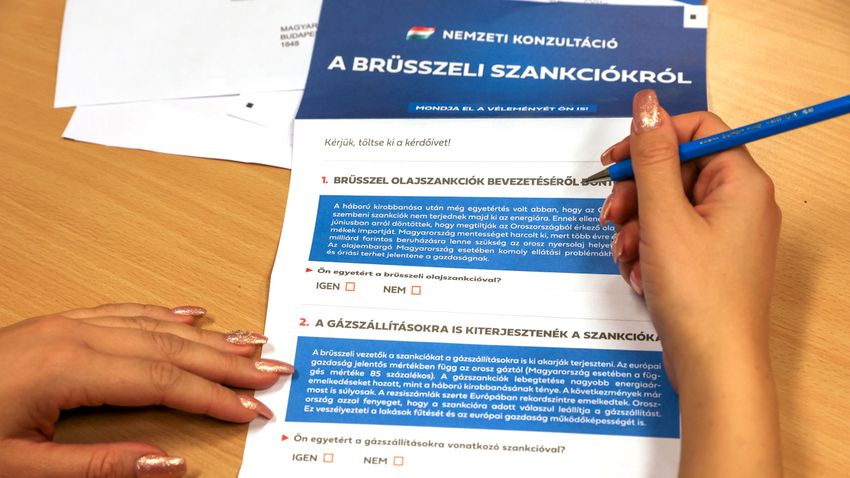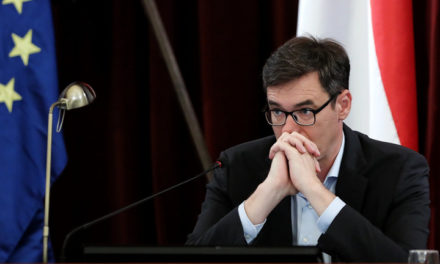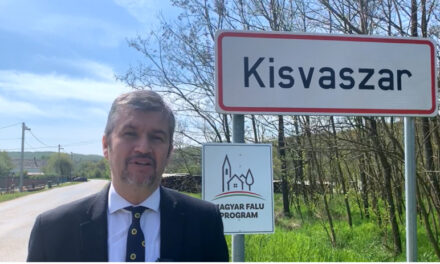The filling period for the national consultation on sanctions will end on Friday, and the evaluation of the questionnaires will begin. In recent weeks, the politicians of the governing party have been saying on their country tours that the decisions made in Brussels are harming Hungary, while the domestic left has regularly put its faith in the European Union's sanctions policy.
The national consultation on the Brussels sanctions is coming to an end, the questionnaires can be returned until Friday, after which the processing of the results will begin. The twelfth consultation contains seven questions, mainly of an energy security nature, but also deals with sanctioned damage to tourism and the topic of food safety, and the number of respondents recently exceeded one million. In recent weeks, several politicians from the ruling party have toured the country, and at these events it has been emphasized that when the sanctions against Russia were introduced in Brussels, they obviously lied to all member states, including Hungary, since the sanctions actually harm Europe and not Russia.
It is not surprising that the left, as it did during previous consultations, also attacks the questionnaire on energy sanctions, claiming that the economic crisis is not caused by Brussels' measures. The largest left-wing party, the Democratic Coalition, has been hostile to the national consultation from the first moment, because they think there is no point in asking people about the sanctions.
In the meantime, Momentum launched a campaign to collect the consultation forms and distribute them to those in need as incendiaries. According to them, this is the way to get the most out of the national consultation, which they called a liar and a demagogue.
It is worth recalling: Mayor Gergely Karácsony previously stated that he was happy with the sanctions.
It should be remembered that the government regularly turns to the people in times of crisis to ask for their opinion, as the cabinet has used the institution of national consultation on several occasions in recent years. This form of consultation allows citizens to express their opinion in special situations between two elections about the direction the government should take in certain strategic issues. One of the best-known national consultations took place in May 2015, during the migration crisis that reached Europe, and it was about immigration and terrorism. At that time, 1.254 million people took part in the consultation, and the vast majority of respondents supported the government in standing up for the national interest against the policies of Brussels. This strong authorization made it possible for Viktor Orbán and his government to stick to the Hungarian position in the face of EU pressure, thus getting Brussels to renounce the introduction of the migrant quota.
Source: magyarnemzet.hu
Photo: Délmagyarország/Csaba Karnok












